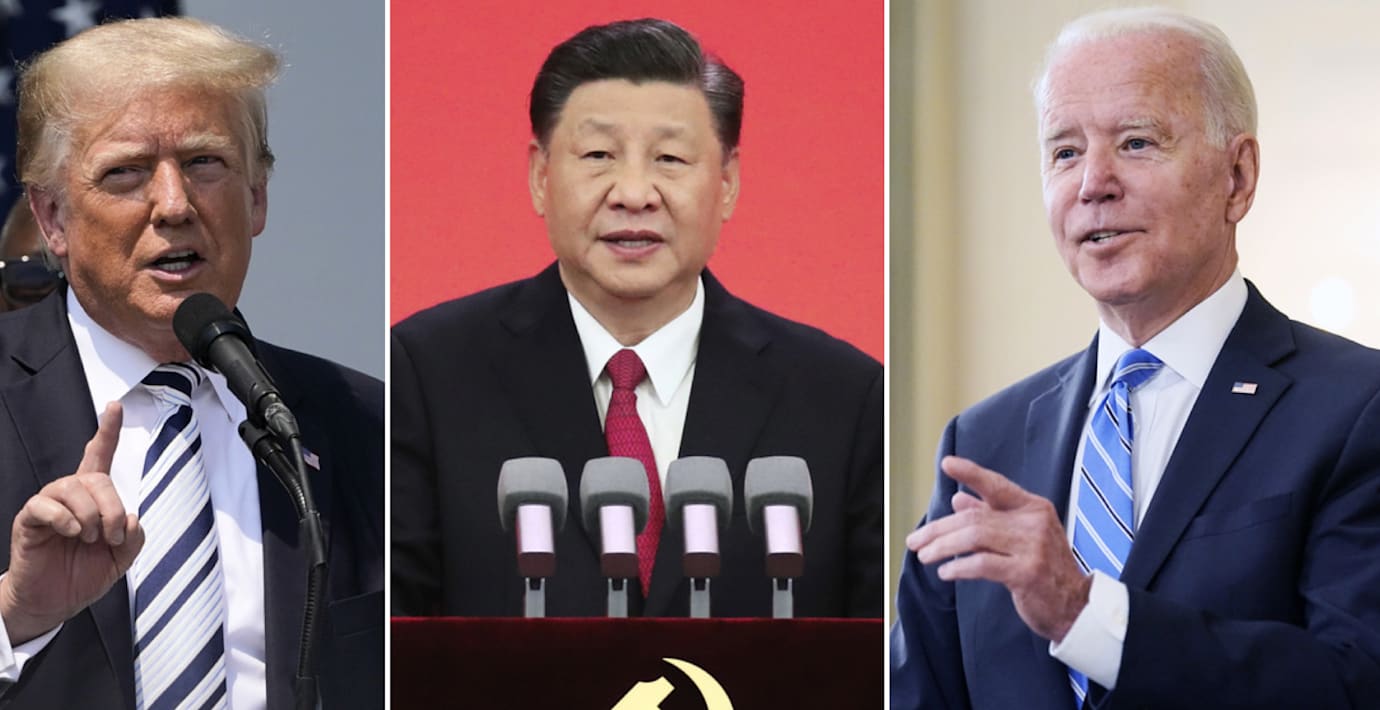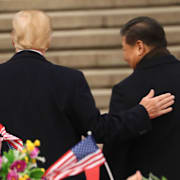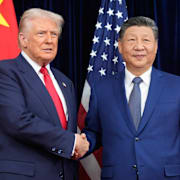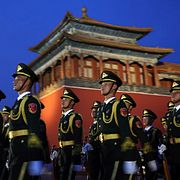bakgrund
Handelskriget mellan USA och Kina
Wikipedia (en)
The China–United States trade war (Chinese: 中美贸易战; pinyin: Zhōngměi Màoyìzhàn) is an ongoing economic conflict between China and the United States. President Donald Trump in 2018 began setting tariffs and other trade barriers on China with the goal of forcing it to make changes to what the U.S. says are "unfair trade practices". Among those trade practices and their effects are the growing trade deficit, and alleged theft of intellectual property and forced transfer of American technology to China. In response to US trade measures, the Chinese government has accused the Trump administration of engaging in protectionism. On January 15, 2020, the two sides reached a phase one agreement, but tensions persisted.
Since the 1980s, Trump has advocated tariffs to reduce the U.S. trade deficit and promote domestic manufacturing, saying the country was being "ripped off" by its trading partners; imposing tariffs became a major plank of his presidential campaign. A backgrounder by the Council of Foreign Relations said that while many economists and trade experts did not believe that trade deficits hurt the economy, others believed that sustained trade deficits were often a problem, and there was substantial debate over how much of the trade deficit is caused by foreign governments, as well as what policies, if any, should be pursued to reduce it. Nearly all economists who responded to surveys conducted by the Associated Press and Reuters said that Trump's tariffs would do more harm than good to the economy of the United States, and some economists advocated for alternate means for the United States to address its trade deficit with China.The trade war has negatively impacted the economies of both the United States and China. In the United States, it has led to higher prices for consumers and financial difficulties for farmers. In China, the trade war contributed to a slowdown in the rate of economic and industrial output growth, which had already been on a decline. Many American companies have shifted supply chains to elsewhere in Asia, bringing fears that the trade war would lead to a US-China economic ‘decoupling’. In other countries the trade war has also caused economic damage, though some countries have benefited from increased manufacturing to fill the gaps. It has also led to stock market instability. Governments around the world have taken steps to address some of the damage caused by the economic conflict.Internationally, there has been support for the end goal of the Trump administration's trade war of trying to change China's trade policies, while there has also been criticism of the use of tariffs and the trade war's negative economic impact. Among American industries, U.S. businesses and agricultural industries have opposed the trade war, though most farmers continued to support Trump. Among U.S. politicians, some have disagreed with the tactics Trump is employing, but most agree with the goal of putting pressure on China. As of late November 2019, none of the leading Democratic candidates for president said they would remove the tariffs, including Joe Biden and Elizabeth Warren, both of whom agreed the U.S. had to confront what they see as China's unfair trade policies.




